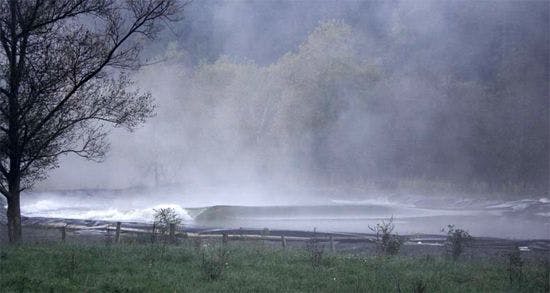technologyIntuition Vs Science – The Future of Surfing

I was listing to a very interesting discussion this week on one of my favorite podcasts, The Skeptics Guide To The Universe. One woman argued that science wasn’t necessary to confirm things that we already know intuitively. The host of the show pointed out that if two people’s intuition conflict then without science you cannot resolve the issue. He went on to point out that science is simply “a systematic way for carefully and thoroughly observing nature and using consistent logic to evaluate the results”. It’s doesn’t have the magical (and marketable) connotations that ‘intuition’ has and sometimes science can be a long, unglamorous and tedious process. Billabong, who’s tag line is ‘only a surfer know the feeling,’ probably wouldn’t sell as many t-shirts with the line ‘only a surfer evaluates the data.’
In surfing, like in many things, intuition can lead you seriously astray. When we’re trying to figure out what works and what doesn’t work, we constantly fall prey to the usual logical fallacies: cherry picking results, confusing causation with correlation and confirmation bias. For example, if you get a good wave on a new board it doesn’t mean that you got a good wave because you have a new board. As humans we are notoriously bad at objectively observing things and the finer points of good surfing technique are especially difficult to isolate because it is impossible to control all the variables (hence the success of the Power Balance scam).
The reason we teach contest judging to all levels of surfer here at The Surf Simply Resort, is because the more objectively you evaluate something, the better you can understand it – and the more you understand something, the more you can improve and enjoy it. The contest criteria is the best way we have to observe and evaluate surfing, objectively and logically. Or is it?
There are two major problems with getting scientific about any aspect of surfing (whether it is technique, equipment or performance). The first is that it is impossible to accurately repeat a wave and the second is that is is impossible to measure the complex movements of the board in relation to the water.
In Northern Spain The Wave Garden project is producing beautiful, but more importantly, replicable waves (photo above). At the moment the waves are about waist high but bigger waves are the plan for the company, which believes that head high waves are the optimum size to make The Wave Garden financially sustainable as a business (this has been the Achilles heal of many similar projects).
Meanwhile European surfboard shapers, Pukas have teamed up with Spanish techology company Technalia to ‘turn feelings into facts and figures‘ by building a surfboard with integrated motion sensing hardware.
Bringing these two things together allows us to achieve measurable, replicable surfing where we can control the variables. Bingo.